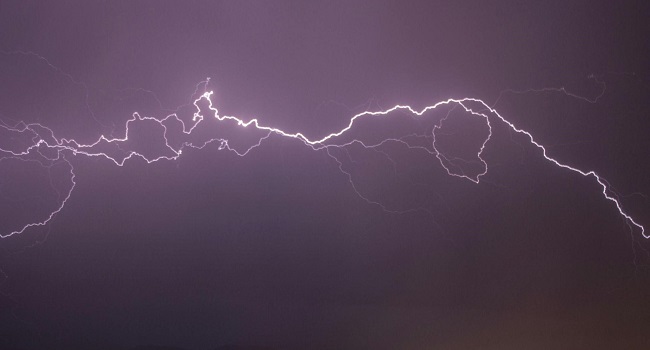Generators can be an essential resource in remote areas without access to main electrical networks. Modern generators use advanced technologies that increase efficiency while decreasing emissions – aligning perfectly with global efforts against climate change.
They are portable.
Generators are essential tools in many ways, from keeping your refrigerator running to providing power for computers. Furthermore, generators can protect food and medication from spoilage during power outages as well as ensure operations like grocery stores and hospitals continue without interruption, helping ensure the production of goods and services can continue without losing income or becoming unsafe for individuals.
Various kinds of generators exist to meet various needs, from home and portable generators to industrial ones. Understanding their operation will help you select the appropriate machine.
Power generators are essential in remote locations with no access to a grid of electrical energy, providing critical backup power when the grid goes out or when power fails, such as computers, televisions, and lights. In disaster zones they may even power medical equipment and communications systems; additionally, they are ideal for charging electric vehicles – part of an ongoing trend toward sustainable transportation practices.
They are reliable.
Power generators can serve both as backup power in case of power outages and as primary power sources in remote locations.
They are powered by natural gas, diesel fuel, or other sources and installed either in your garage or backyard. The best ones, like the ones at PRIMA Power generators, offer convenient features to meet homeowners’ needs and make use of space efficiently. Professionals can help you determine which model will be the best fit for your needs.
Today’s generators are much quieter and pollutant-free compared to older models; however, they should still be placed away from windows and doors due to the exhaust produced from them; their carbon monoxide emissions contain poisonous levels which could poison people if inhaled at high concentrations.
When purchasing a generator, make sure that it meets the power needs of your appliances. To check, review its label which should list its power specifications in watts. Creating a list of devices that need powering will also assist you when choosing an ideal generator during an outage situation. Lastly, be sure to perform regular maintenance on it, such as oil changes and testing the unit regularly.

They are affordable.
Power generators play an indispensable role in our energy system, providing backup during emergencies and expanding access to energy in remote areas. They also play a part in stabilizing grid operations and cutting emissions – contributing to global efforts against climate change. As technology develops further, innovations improve efficiency while cutting costs and increasing sustainability.
Consider what type of electricity you wish to generate and its frequency when selecting a generator. Portable gas generators can be easily transported yet are unsuitable for use during power outages since you must remain near an accessible fuel source. A propane-fueled unit may be more maintenance-intensive.
Home generators are typically rated by their wattage output, or the amount of electricity they can supply. This rating typically comprises two figures: starting and running wattages.
Starting wattages refer to power needed to start and switch on appliances while running wattages measure how much electricity is consumed during normal operation; for instance, power tools typically consume between 250 to 350 watts during use while electronics such as laptops or TVs typically use much lower amounts. You can visit this site to learn more.
An emergency generator is an invaluable way to ensure essential equipment works during an outage, including sump pumps and medical devices. Furthermore, it prevents food from spoiling while making sure that phones and emails remain functional – this is particularly useful for people working from home or having children with medical needs.
Renewable home generators offer homeowners many choices when selecting their power source of choice for home backup needs, with increased popularity being generated from renewable energy sources such as wind or solar power. These eco-friendly models require less maintenance and burn less fossil fuel, making them cost-effective in the long term.
The cost of home generators depends on their size, type of fuel source, and additional features; gasoline-powered models cost $30 daily while propane ones run about $50 – and installation also has associated expenses like assessing the site, building concrete pad foundation, connecting existing utility lines, and installing a transfer switch. You can click the link: https://www.globalpetrolprices.com/Canada/gasoline_prices/ for up-to-date gasoline prices.
They are easy to maintain.
Power generators can provide backup energy in times of disaster, but it is critical to keep them in good condition to prevent mechanical failures which could otherwise cripple vital work operations at facilities and even be potentially unsafe for employees. Preventative maintenance reduces mechanical failure risks while detecting problems early.
Assure the generator is fully charged, its terminals are free from corrosion and its electrolyte is at an appropriate level; test its voltage and specific gravity. If its levels drop too far below healthy standards, add distilled water as soon as possible to restore them. Furthermore, conducting a load bank test to assess its ability to go from cold starts to full operation within seconds is also highly recommended.
As with other equipment, power generator parts tend not to last as long. Exposed to various environments and possibly degrading over time, generator parts should be replaced as soon as they wear down – for instance, a belt that makes noise should be seen as an indication that its time has come for replacement.
Maintaining records is also key to effective maintenance, helping ensure all tasks are carried out on schedule and identifying any areas needing improvement or repairs. These records should include details like the date, task performed, and technician who performed it. Keeping an accurate log will allow technicians to ensure maintenance tasks are carried out without fail and identify areas needing improvement or repairs quickly and effectively.

Power generators have multiple uses, from home use to work sites. A generator converts mechanical energy from an engine into electrical output with an alternator and external fuel source; you can program one to switch on automatically when the power goes out – making it an invaluable emergency backup solution.





























